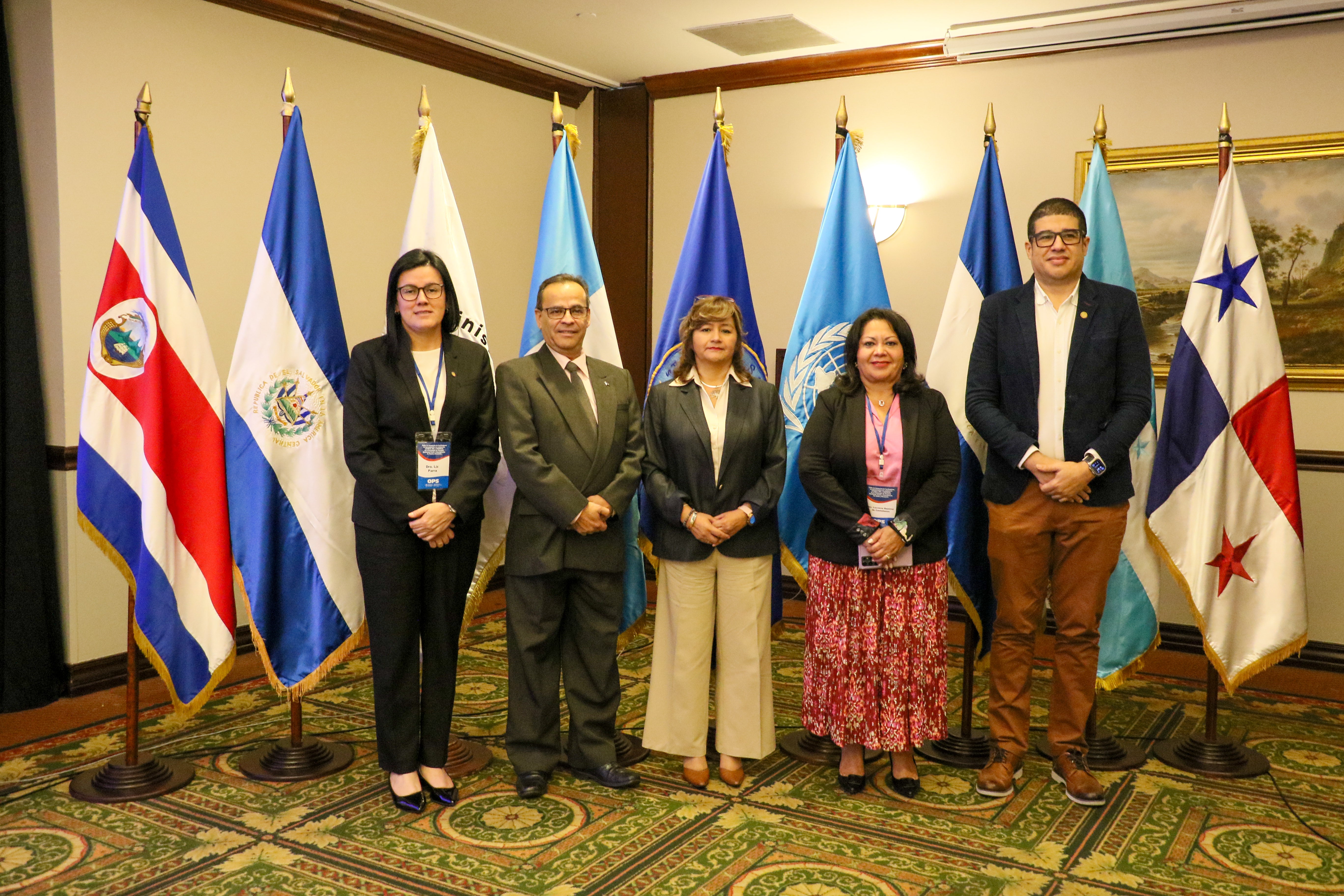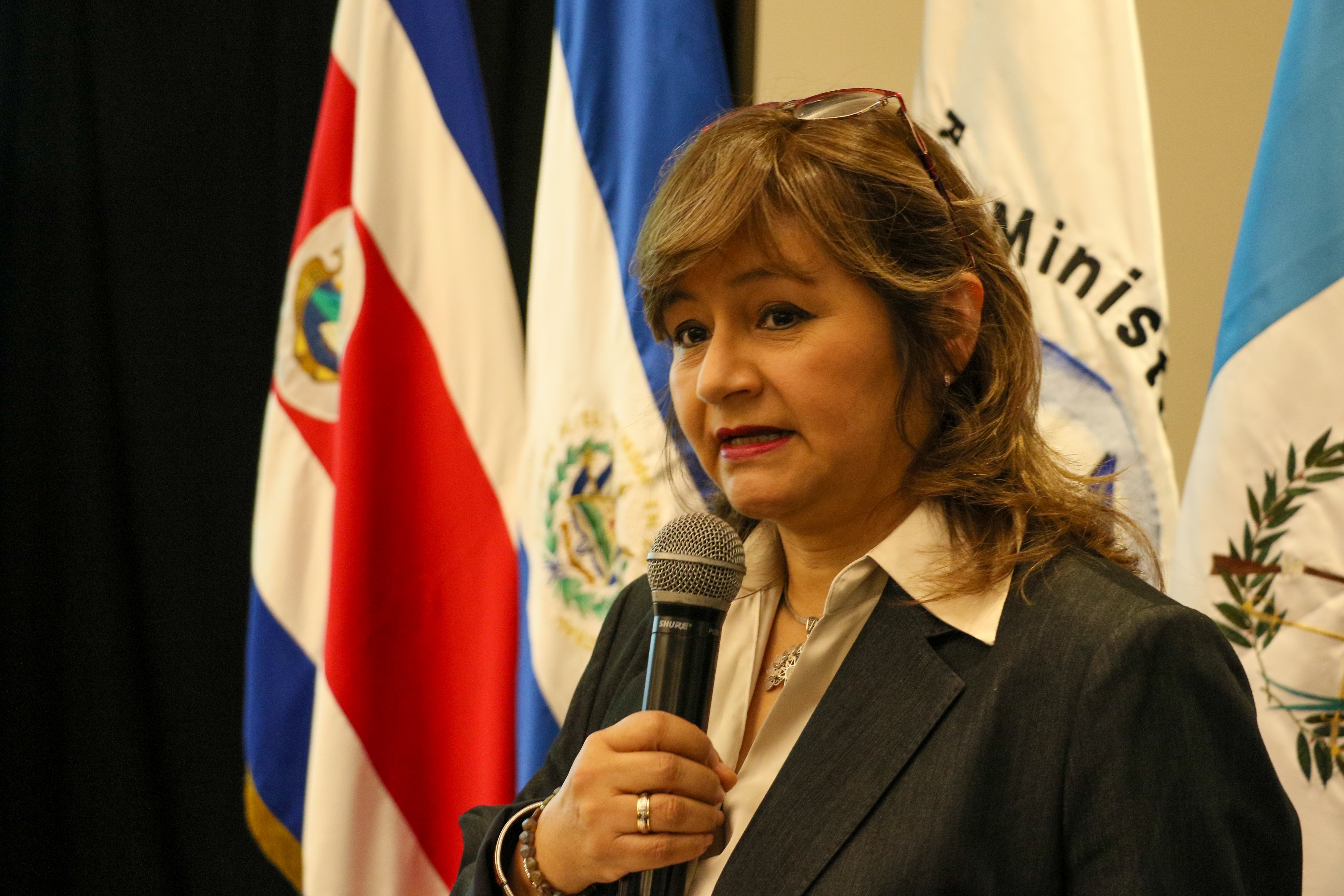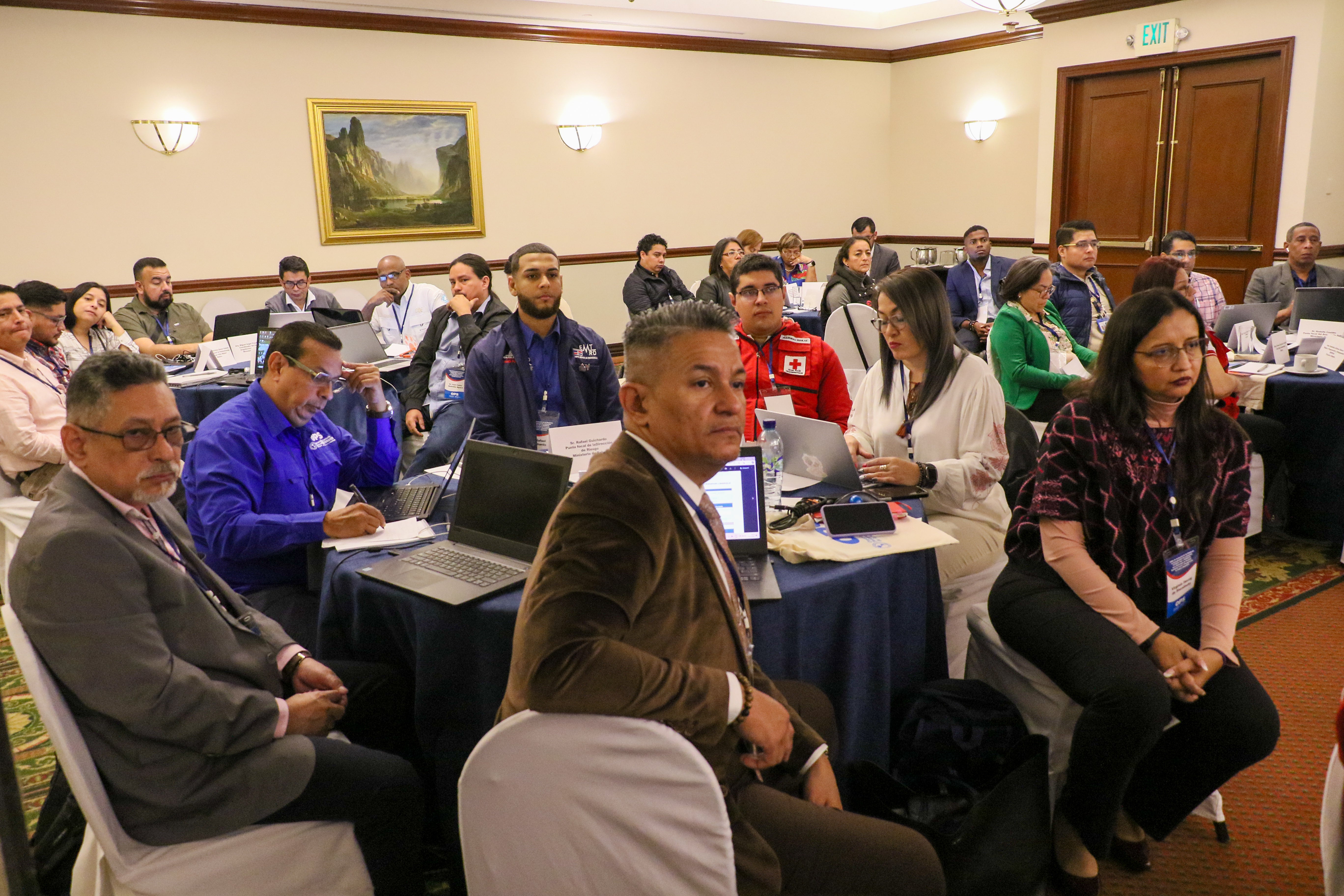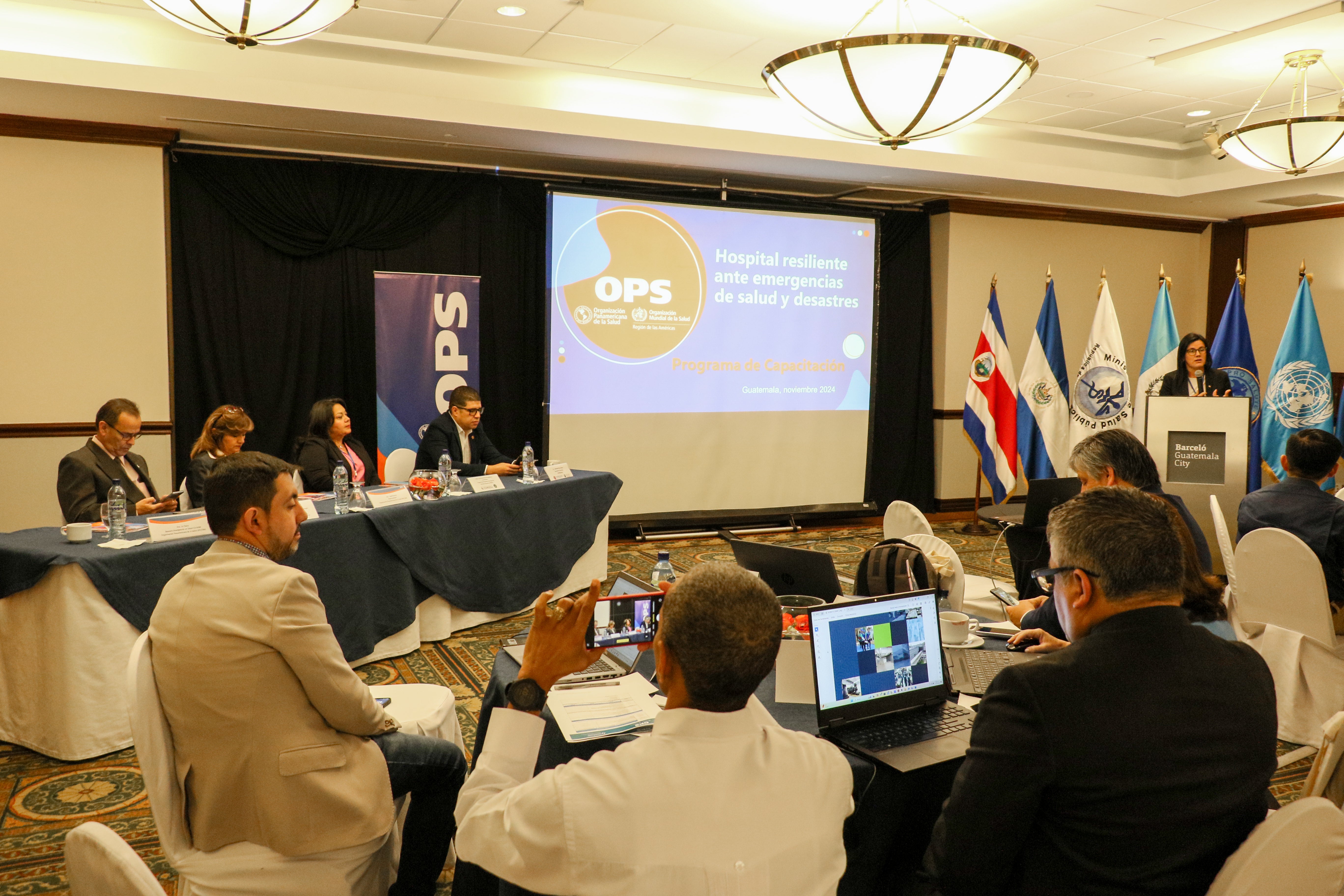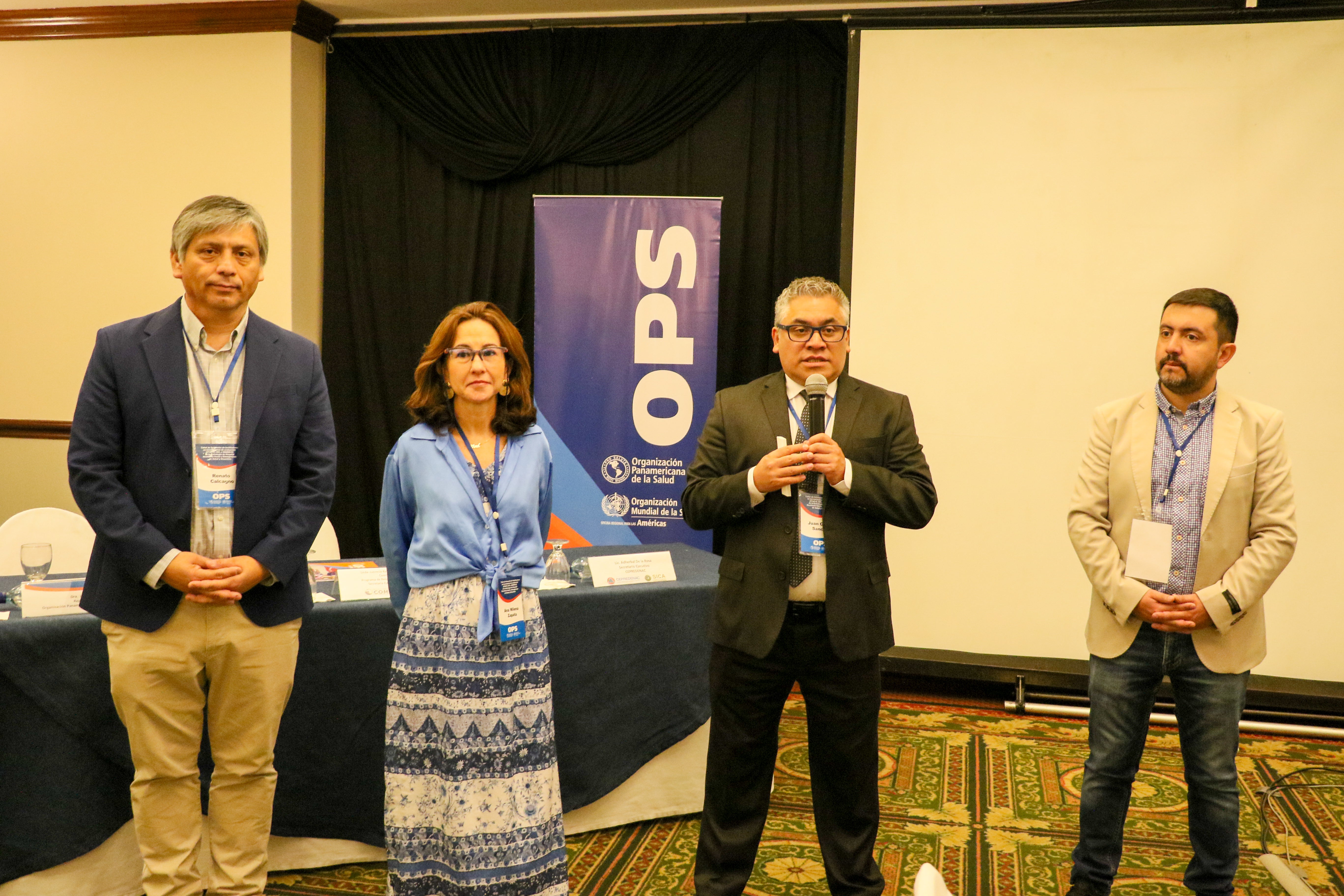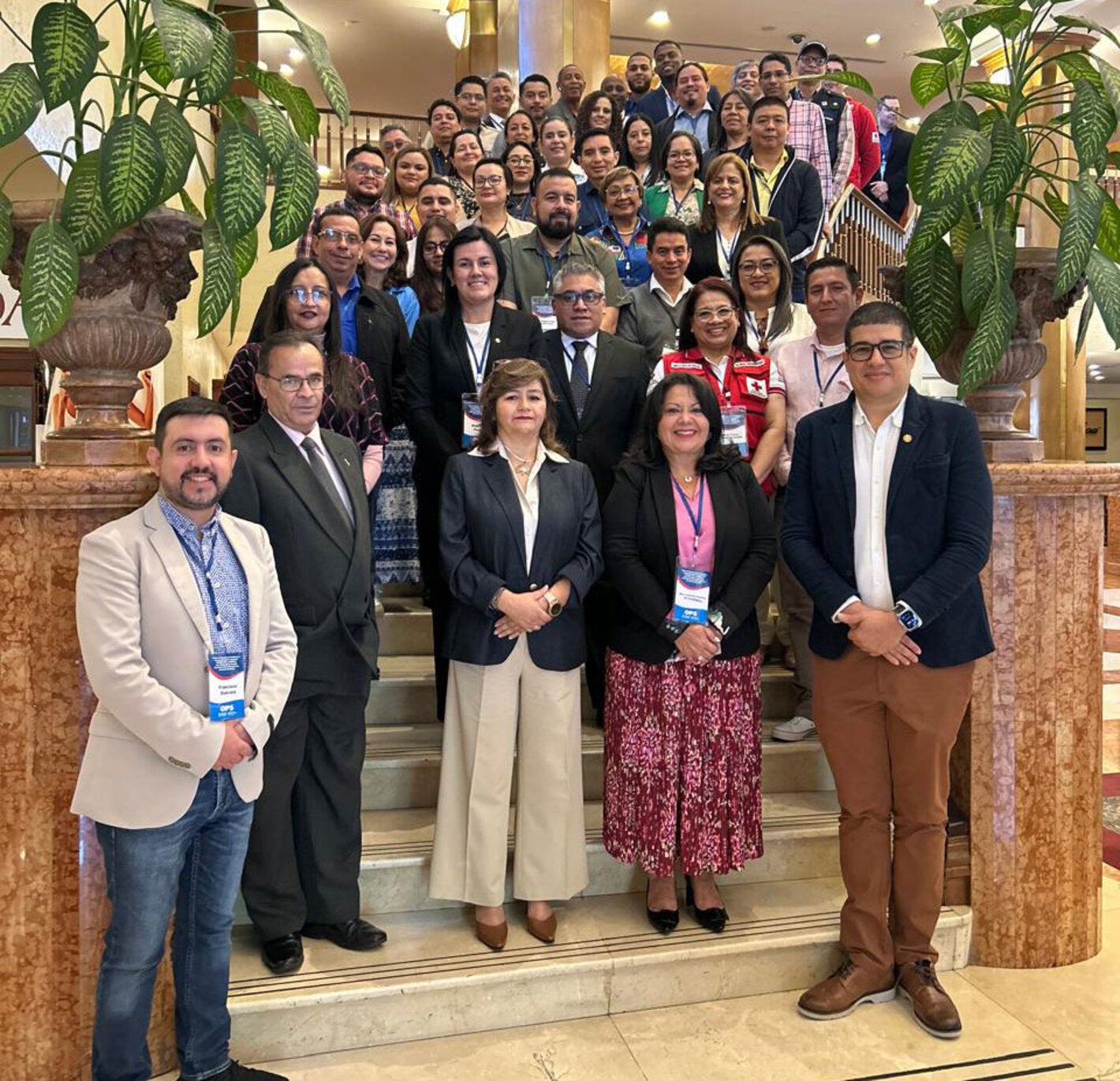
Guatemala City, 25 November 2024 (OPS) – To strengthen the preparedness and response capacities of health facilities in Central America and the Dominican Republic for emergencies and disasters, the Pan American Health Organization/World Health Organization (PAHO/WHO) organized a Training Workshop for Facilitators on Evaluation Tools for the Resilient Hospital Strategy in response to Health Emergencies and Disasters.
This workshop took place in Guatemala City, Guatemala, from November 25 to 29, with the participation of officials responsible for emergency management or disaster risk management in health, civil engineers specialized in structures, architects and maintenance professionals specialized in hospital design or technical support infrastructure, health professionals or related fields trained in emergency and disaster management and/or the Safe Hospitals program of the ministries of health and other relevant institutions from the countries of Central America and the Dominican Republic.
The five-day event combined theoretical and practical training sessions. Participants worked in groups, applying these methodologies to simulated and real scenarios. The workshop concluded with a field exercise at a local hospital, providing participants with practical experience in evaluating and planning interventions to improve hospital resilience.
The opening ceremony was presided over by Dr. Ingrid García, PAHO/WHO Representative in Guatemala; Dr. Edgar Manuel Santos Tejeda, Director of the Directorate of Epidemiology and Risk Management of the Ministry of Public Health and Social Assistance of Guatemala; Dr. Lucrecia Ramírez de Castellanos, Coordinator of the Emergency Response Program of the Executive Secretariat of COMISCA, representing Dr. Alejandra Acuña, Executive Secretary of SECOMISCA; Dr. Adherbal De la Rosa, Executive Secretary of CEPREDENAC; and Dr. Liz Parra, Health Emergencies Advisor for Central America and the Dominican Republic of PAHO/WHO, representing Ciro Ugarte, Director of Emergencies of PAHO/WHO.
In her speech, Dr. Ingrid García emphasized the importance of the workshop for the region, stating: 'This workshop is a significant step towards building more resilient health systems, capable of responding to and recovering from emergencies effectively and sustainably. We are pleased to strengthen the capacities of those who will lead this effort in their communities and countries.
The workshop aimed to train facilitators in the use of tools such as STAR-H, ISH, and INGRID-H, focused on the strategic evaluation and planning of hospitals to ensure their safety, sustainability, and inclusiveness against multiple threats. The crucial role of the participants as multipliers of this knowledge in their respective countries was highlighted, to foster better-prepared hospital networks to protect lives and ensure the continuity of health services in emergency and/or disaster situations.
The 'Resilient Hospital Strategy against Health Emergencies and Disasters' integrates methodologies to strengthen the resilience of health facilities to emergencies and disasters. It is based on four strategic pillars: a) a safe hospital in both structural and non-structural elements, b) sustainable (SMART) to reduce the impact of hospitals on climate change, c) inclusive to leave no one behind, and d) flexible and adaptable in its organization and functions, with a multi-hazard preparedness approach based on its strategic disaster risk assessment. Its implementation is supported by evidence-based methodologies, such as the Hospital Safety Index (ISH), the Strategic Assessment of Emergency and Disaster Risk in Health Facilities (STAR-H), and the Inclusion Methodology for Disaster Risk Management in Hospitals (INGRID-H).
ISH provides a baseline for assessing the capacity of health facilities to handle emergencies, identifying their strengths and weaknesses. Since its update in 2015, it has been used in more than 83 countries. STAR-H allows for the identification and prioritization of risks to plan strategies that enhance hospital preparedness, response, and recovery from threats of any type or magnitude. INGRID-H ensures the inclusion of people with disabilities in risk management, complying with Article 11 of the United Nations Convention on the Rights of Persons with Disabilities, and offers a detailed plan for implementing inclusive actions in hospitals. These tools, integrated into a strategic approach, strengthen hospitals' capacities to protect lives, ensure the continuity of services, and promote resilience to emergencies and disasters.
Natural hazards and health emergencies continue to test the response and recovery capacity of health systems worldwide. In the Americas alone, more than 20,000 health facilities have been identified as being exposed to multiple threats such as hurricanes, floods, earthquakes, landslides, mass casualty incidents from transportation accidents, pandemics, among others. In Central America, 631 hospitals have been identified as exposed to multiple threats, making preparedness a fundamental priority.
This workshop aligns with the global health agendas outlined in the PAHO Strategic Plan 2020-2025 and the Sendai Framework for Disaster Risk Reduction. It underscores the urgency of equipping health professionals with the necessary tools and knowledge to ensure that hospitals remain operational during emergencies and disasters. It is also in accordance with the Comprehensive Disaster and Emergency Risk Management Strategy from the health perspective of SE-COMISCA, as well as the Central American Risk Management Policy (PRGRID), reaffirming the joint commitment of PAHO/WHO, SE-COMISCA, and CEPREDENAC towards a safer, more sustainable, inclusive, and resilient region that seeks to protect lives, safeguard investments, and ensure the continuity of health services during emergencies and disasters.

